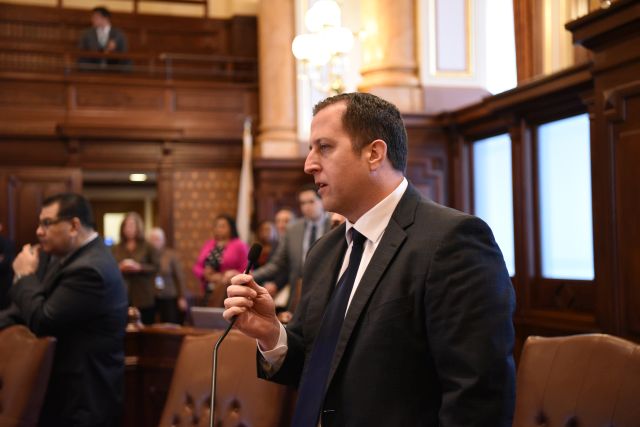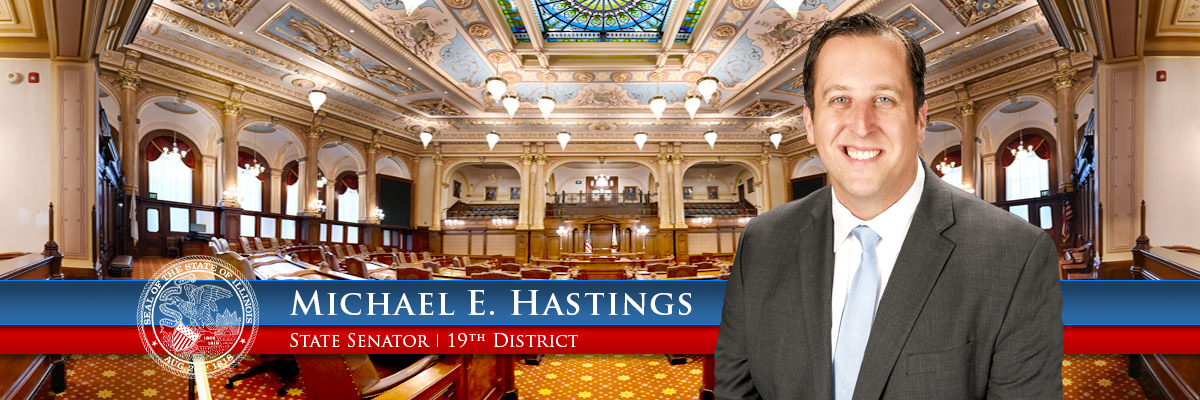
SPRINGFIELD – To promote stability for working-class families in Illinois, State Senator Michael E. Hastings (D-Tinley Park) voted in favor of Senate Bill 1, which was signed by Gov. JB Pritzker this week.
“The passage of this historic measure is long overdue,” Hastings said. “Over the past decade, workers have not seen a change in the minimum wage, but they have seen an increase in the cost of living. Ensuring that working families have a sense of sense of dignity, fairness, and stability in everyday life is an accomplishment I’m very proud of.”
The last time the General Assembly raised the minimum wage was in 2010. If the minimum wage had kept pace with inflation, the current wage would be nearly $10 an hour. According to a 2017 report by the Washington Post, a full-time worker would need to earn $21 an hour to afford the average rent on a two-bedroom apartment in Illinois.
“My district voted in 2014 to increase the minimum wage and I heard them. I also heard those that work in industries like home health care and those with developmental disabilities, many of whom earn the minimum wage. They have tough jobs and deserve to get paid a fair working wage,” Hastings said. “But it is important to take into consideration how employers and businesses implement the wage increase.”
Senate Bill 1 includes tax credit to small businesses to assist with the implementation of the higher wages. The credit is available to all qualified employers who must withhold taxes from employee wages.
Senate Bill 1 will phase in a higher minimum wage according to the following schedule:
• $9.25 per hour on Jan. 1, 2020
• $10 per hour on July 1, 2020
• $11 per hour on Jan. 1, 2021
• $12 per hour on Jan. 1, 2022
• $13 per hour on Jan. 1, 2023
• $14 per hour on Jan. 1, 2024
• $15 per hour on and after Jan. 1, 2025


